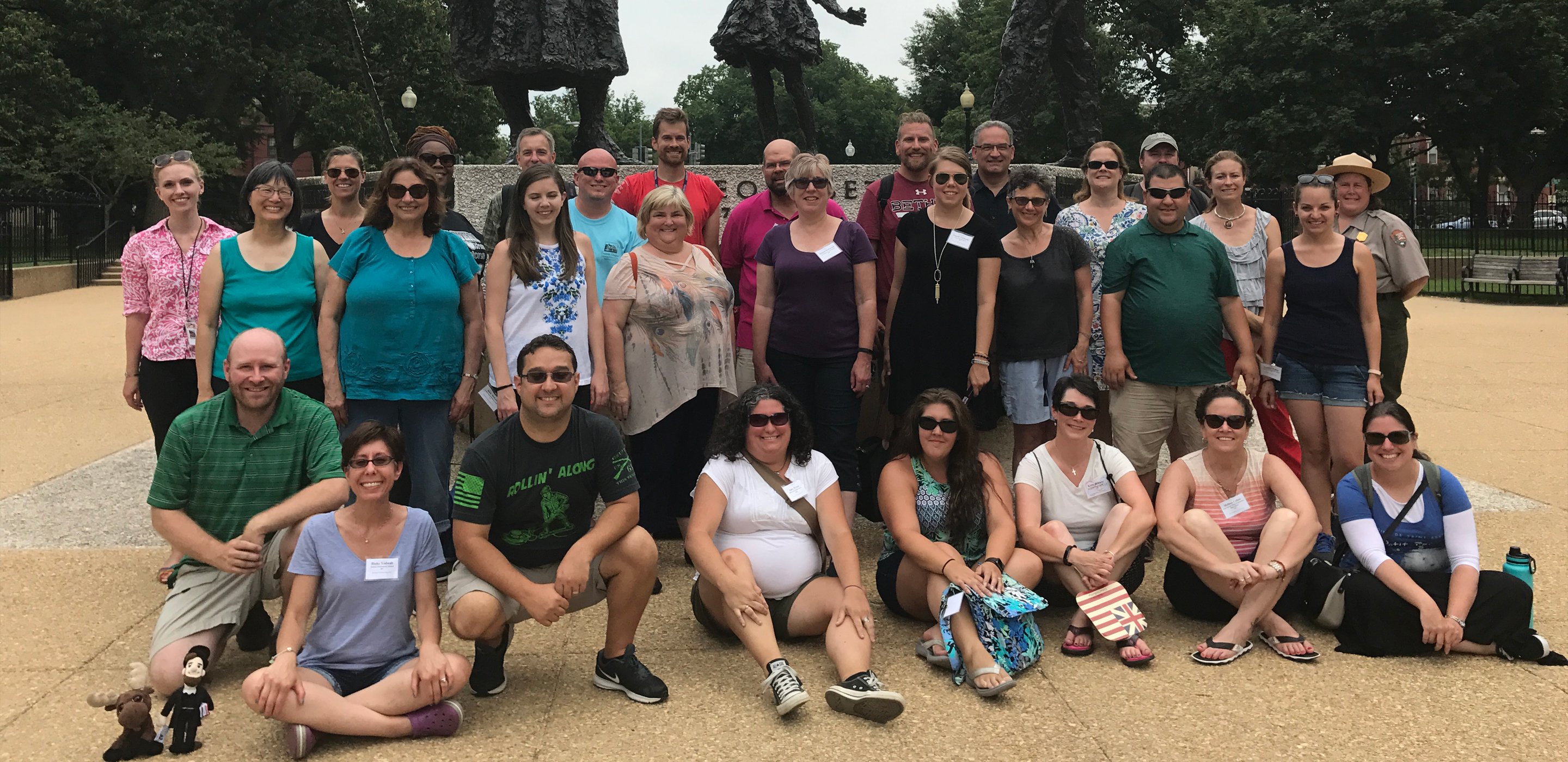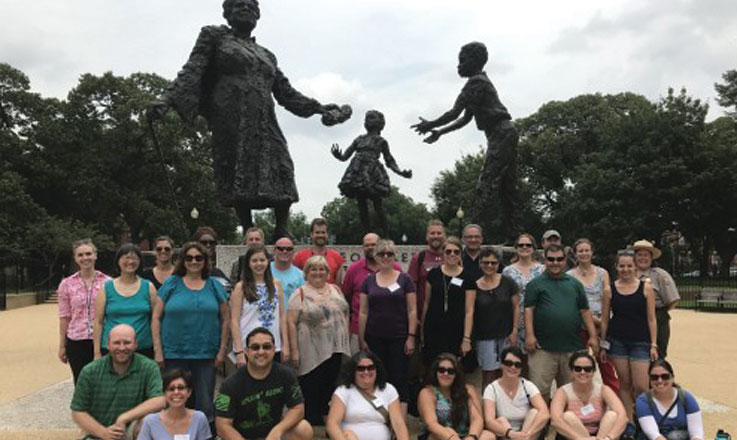
Set In Stone
Set in Stone: Civil War Memory, Monuments and Myths
Our monument landscape is changing. Examine how people have sculpted the narrative of United States History through monuments and memorials in our nation’s capital. Investigate how the legacies of the Civil War and Reconstruction – slavery, freedom, race and power – shape public memory. Activate a national professional learning network of fellow teachers and museum educators. Gain tools to help students grapple with histories whose legacies matter today, and to inspire civic engagement.
Discover historical content to share with students.
- Learn how Washington’s transformation during the Civil War laid the groundwork for Reconstruction.
- Learn about the role of Contraband Camps in Washington, the growth of historic Anacostia, the Freedmen’s Village at Arlington, and how African-American leaders like Frederick Douglass and others engaged in politics and the fight for civil liberties.
- Learn how iconic and lesser-known memorials came to be, and how our built environment continues to be a dynamic landscape.
Develop historical thinking skills.
- Examine monuments and memorials to better understand how the Civil War has been remembered throughout history.
- Get hands-on experience analyzing documents, speeches, images and historic sites as primary sources.
- Engage in the current national dialogue about monuments with fellow teachers from around the country.
Learn new strategies and resources you can apply in the classroom.
- Explore a variety of tools and resources that can help you harness the power of primary sources in the classroom.
- Learn how to lead nuanced discussions with your students of how our country’s history is reflected in our communities and physical spaces – and continues to impact us today.
July 20-25, 2025
Program Details and Credit
- Cost: Free. Participants must pay a $100 refundable deposit to secure their place in the institute. Deposits are refunded upon successful completion of the program.
- The institute will accommodate up to 20 teachers of grades 3 through 12.
- Successful completion of the program certifies 36 hours of professional development.
- Graduate Credit is available through Trinity University Washington: Three (3) credits for $375.
What to Expect
- Travel: Round-trip air travel is provided through United Airlines for national participants traveling from outside the commutable D.C.-area.
- Housing: Single-occupancy hotel accommodations will be arranged for all participants. Participants receiving hotel accommodations will be housed at the Hotel Monaco
- Daily Transportation: Bus transportation will be provided between the program locations each day.
- Meals: Lunch is provided Monday-Friday for all participants. Dinner is provided for the Sunday evening opening session and on Wednesday. Participants are responsible for all other meals.
- Accessibility: The program is an active exploration of Washington, D.C., that includes several miles of walking daily and requires the use of historic steps. If you have questions or concerns about mobility and accessibility please email us.
Application Deadline: March 17, 2025 at 11:59 p.m. ET
Applicants will be notified of their status no later than April 21, 2025.
Ford’s Theatre Summer Teacher Institutes are made possible with support from the John T. Elliff Scholarship Fund of the Lincoln Group of DC.
“This experience helped me understand Reconstruction as well as the importance of teaching this time period in American History.”
– Program Participant
Join Our Newsletter
Stay up-to-date on teacher programs and application deadlines by joining our newsletter. To join, select “Enews for Teachers” when you subscribe.
Explore Civil War Memory with Ford’s

Impact
Evaluation Report
This report synthesizes the impact of the Teaching Fellows Program on teachers’ knowledge, efficacy and pedagogy and teachers’ perceptions of how their learning will impact their students’ learning.
Help Empower Teachers
Support our professional development programs with a donation today.
“Incredibly effective at providing knowledge, skills, and experiences to support meaningful teaching about The Civil War.”
Maia Sheppard, Ph.D., Associate Professor, George Washington University
